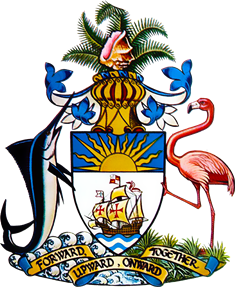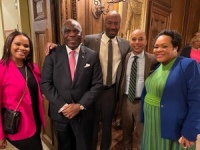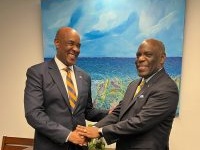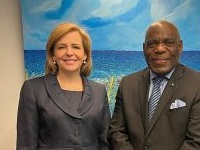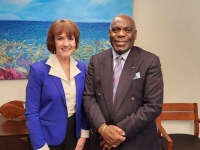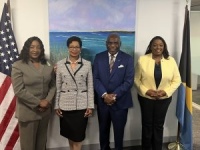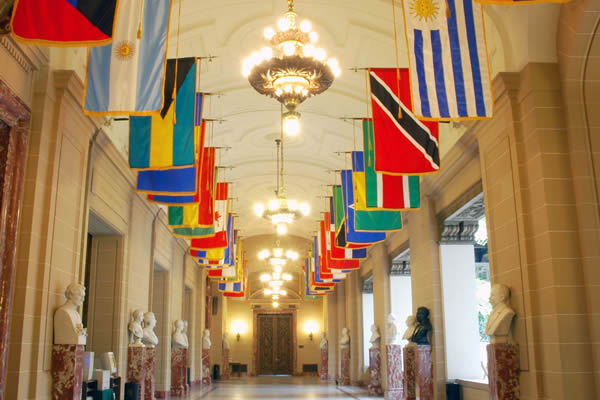
Photo credit: oas.org
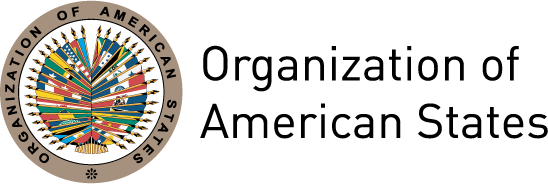
The Organization of American States (OAS) is the world’s oldest regional organization, dating back to the First International Conference of American States, held in Washington, D.C., from October 1889 to April 1890. That meeting approved the establishment of the International Union of American Republics, and the stage was set for the weaving of a web of provisions and institutions that came to be known as the Inter-American system, the oldest international institutional system.
The OAS came into being in 1948 with the signing in Bogotá, Colombia, of the Charter of the OAS, which entered into force in December 1951. It was subsequently amended by the Protocol of Buenos Aires, signed in 1967, which entered into force in February 1970; by the Protocol of Cartagena de Indias, signed in 1985, which entered into force in November 1988; by the Protocol of Managua, signed in 1993, which entered into force in January 1996; and by the Protocol of Washington, signed in 1992, which entered into force in September 1997.
The Organization was established in order to achieve among its member states—as stipulated in Article 1 of the Charter—”an order of peace and justice, to promote their solidarity, to strengthen their collaboration, and to defend their sovereignty, their territorial integrity, and their independence.”
Today, the OAS brings together all 35 independent states of the Americas and constitutes the main political, juridical, and social governmental forum in the Hemisphere. In addition, it has granted Permanent Observer status to 69 states, as well as to the European Union (EU).
The Organization uses a four-pronged approach to effectively implement its essential purposes, based on its main pillars: democracy, human rights, security, and development.
The Bahamas Membership at the OAS:
The Bahamas obtained membership to the OAS in 1982 and has maintained active engagement with the Organization ever since. Aside from having access to the premier hemispheric political forum and the many programs and projects facilitated by the Organization, The Bahamas also benefits from OAS membership through direct diplomatic relations with the Member States of the Hemisphere and Permanent Observer States, particualry where The Bahamas has no resident diplomatic Mission.
Key areas of focus at the OAS for The Bahamas:
Executive Secretariat for Integral Development (SEDI)
The mission of the Executive Secretariat for Integral Development (SEDI) is to assist the member states with their efforts to reduce poverty and achieve greater economic and social development. It does this by implementing programs, projects, and activities in partnership and by supporting dialogue at the highest levels to define policies and set priorities in the areas of action established in the Strategic Plan for Partnership for Integral Development 2006-2009: Social development and the creation of productive employment; Education; Economic diversification and integration, Trade liberalization and market access; Scientific development and exchange and transfer of technology; Strengthening of democratic institutions; Sustainable development of tourism; Sustainable development and environment; and Culture.
While The Bahamas continues to benefit from the myriad of programs and policies promulgated through SEDI, one of its most noteworthy programs is the OAS Scholarships and Training Program, through which numerous Bahamians benefit on an annual basis. The Bahamas currently sits on the Scholarship Capital Fund Committee, which oversees funds used to enhance the OAS Scholarships and Training Program.
Click here for more information on SEDI
Click here for more information on OAS Scholarships and Training Programs
Inter-American Committee against Terrorism (CICTE)
The Inter-American Committee against Terrorism (CICTE) was established in 1999 for the purpose of promoting and developing cooperation amongst the Member States of the Organization of American States (OAS) in preventing, combating and eliminating terrorism in accordance with the principles of the OAS Charter and the Inter-American Convention against Terrorism, and with full respect for state sovereignty, the rule of law and international law.
The Bahamas Government, in seeking to address the challenges posed by terrorism, has made voluntary contributions to the CICTE, and has partnered with CICTE to conduct workshops in The Bahamas aimed at promoting security in the country and the wider Western hemisphere. The Bahamas has also had the privilege of serving as Vice Chair and Chair of CICTE in 2009 – 2010 and 2010-2011, respectively.
Click here for more information about CICTE
Inter-American Commission on Drug Abuse Control (CICAD)
The Inter-American Drug Abuse Control Commission (CICAD), which was established in 1986, focuses on drug related issues affecting the region. The Commission also serves to promote regional cooperation and coordination among OAS Member States through action programs, aimed toward a varied and holistic approach in dealing with the world drug problem.
The Bahamas, as a Member State of the OAS, forms part of the Commission, which has aided in the work of The Bahamas in its efforts to address the multi-faceted challenges of the flow of drugs in the region.
Click here for more information on CICAD
Committee on Budgetary and Administrative Affairs (CAAP)
The Committee on Administrative and Budgetary Affairs (CAAP), a permanent committee of the Permanent Council, has the following functions according to Article 19 of its Rules of Procedure:
1. To recommend to the Permanent Council any programs within the Council’s purview that may serve the General Secretariat as a basis for preparing the proposed program-budget of the Organization, as stipulated in Article 112.c of the Charter;
2. To examine the proposed program-budget that the General Secretariat transmits to it in consultation with the Permanent Council for the purposes indicated in Article 112.c of the Charter, and to submit to the Council such observations as it may deem pertinent;
3. To study any other subjects the Permanent Council may entrust to it in relation to the programs, budget, administration, and financial aspects of the operations of the General Secretariat; and
4. To consider any annual evaluation reports submitted by the Secretary General to the Permanent Council in compliance with the provisions of the General Standards to Govern the Operations of the General Secretariat and, on that basis, to evaluate the overall effectiveness of the Organization’s programs, projects, and activities. Furthermore, to make any recommendations it deems appropriate and submit them to the Permanent Council for consideration and subsequent referral to the Preparatory Committee, so that they may be considered by the General Assembly in conjunction with the proposed program-budget.
The Bahamas continues to actively engage with the Committee on Budgetary and Administrative Affairs, including through past vice-chairmanship positions in the Committee, and continues to take a leading role in promoting fiscal governance reforms and the adoption of international best practices within the Organization.
Click here for more information on CAAP
Credits: Descriptions of the OAS and the Secretariat were obtained from oas.org.
